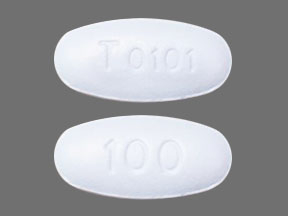Varubi Disease Interactions
There are 3 disease interactions with Varubi (rolapitant).
Rolapitant (applies to Varubi) hepatic impairment
Major Potential Hazard, Moderate plausibility. Applicable conditions: Liver Disease
No dosage adjustment is necessary when using rolapitant in patients with mild or moderate hepatic impairment. The use of rolapitant should be avoided in patients with severe hepatic impairment as there are no clinical or pharmacokinetic data available for these patients. Close monitoring is recommended.
Rolapitant (applies to Varubi) lactose intolerance
Moderate Potential Hazard, Moderate plausibility.
Rolapitant tablets contain lactose. Care should be exercised when using this agent in patients with rare hereditary problems of galactose intolerance, severe lactase deficiency with a severe degree of intolerance to lactose- containing products, or of glucose-galactose malabsorption.
Rolapitant (applies to Varubi) renal impairment
Moderate Potential Hazard, Moderate plausibility. Applicable conditions: Renal Dysfunction
Population pharmacokinetic analyses suggest that no dose adjustment of rolapitant is required in patients with mild or moderate renal impairment. The effect of severe renal impairment on the pharmacokinetics of rolapitant is unknown to determine a dose. This agent has not been studied in patients with end-stage renal disease requiring hemodialysis. Caution is recommended.
Switch to professional interaction data
Varubi drug interactions
There are 236 drug interactions with Varubi (rolapitant).
More about Varubi (rolapitant)
- Varubi consumer information
- Check interactions
- Compare alternatives
- Pricing & coupons
- Reviews (1)
- Drug images
- Side effects
- Dosage information
- During pregnancy
- FDA approval history
- Drug class: NK1 receptor antagonists
- Breastfeeding
- En español
Related treatment guides
Drug Interaction Classification
| Highly clinically significant. Avoid combinations; the risk of the interaction outweighs the benefit. | |
| Moderately clinically significant. Usually avoid combinations; use it only under special circumstances. | |
| Minimally clinically significant. Minimize risk; assess risk and consider an alternative drug, take steps to circumvent the interaction risk and/or institute a monitoring plan. | |
| No interaction information available. |
See also:
Further information
Always consult your healthcare provider to ensure the information displayed on this page applies to your personal circumstances.


